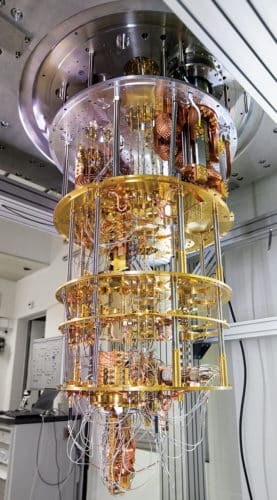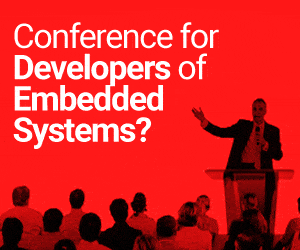This article is a review of the present status of quantum computers, which can solve certain problems much faster than a classical computer. Their future is now much more exciting and awaited
A computer is a device that takes an input, carries out a sequence of instructions, and produces an output. In a digital computer, these inputs, instructions and outputs are all sequences of 1s and 0s—individually called bits. A quantum computer is one that harnesses phenomena from quantum physics, the study of the behaviour of subatomic particles.
A quantum computer does the same thing as a classical computer, but it uses quantum bits or qubits. While a bit takes only one of the two values—1 or 0, a qubit uses the complex mathematics of quantum mechanics, providing a richer set of possibilities. As binary digits or bits are the basic units of information in classical computing, quantum bits or qubits are the basic unit of information in quantum computing.
Large-scale quantum computers would theoretically be able to solve certain problems much more quickly than any classical computer that uses even the best currently known algorithms, like integer factorisation. There exist quantum algorithms, such as Simon’s algorithm, that run faster than any possible probabilistic classical algorithm. On the other hand, quantum computers may be able to efficiently solve problems which are not practically feasible on a classical computer.
The principle is that a particle can be in two different states at the same time—as with Schrodinger’s imaginary cat, who was both alive and dead at the same time. This is known in the jargon as “superposition.” Superposition is at the heart of quantum computing.

Ordinary computers work with bits that can be either on or off—coded as zero or one. But quantum computers work with qubits, which can have a value of 0, 1 or both. Thus, two qubits can represent four states simultaneously 00, 01, 10, 11. This means that a quantum computer would be much faster and efficient at some kind of computation than a classic computer, which has to chunter along with bits that are only on or off.
Quantum computation, a tool for science, represents a fundamental shift that is now underway. Quantum supremacy was the name given to the hypothetical point at which a quantum computer could perform a calculation that no conceivable digital computer could perform in a reasonable amount of time. From a scientific point of view, the future of quantum computation is now much more exciting. The outputs of early digital computers could be verified by hand calculations, while the outputs of quantum computers have until now been verifiable by digital computers.
Quantum teleportation is based on quantum entanglement, through which the properties of a quantum particle can be transferred to a distant particle without physical movement of the particle itself. It is just two interlinked particles revealing the properties of the other particles. Quantum teleportation is possible by using photons which carry the quantum information about the two possible states in case of qubits.
Building quantum computers takes phenomenal engineering. They must be isolated to ensure nothing interferes with the delicate quantum states of the qubits. This is why they are kept in vacuum chambers containing fewer particles than outer space, or in refrigerators colder than anything in the universe. Scientists have been able to teleport qubits.
One of the greatest challenges is controlling or removing quantum decoherence. This usually means isolating the system from its environment as interactions with the external world cause the system to decohere. However, other sources of decoherence also exist.
Examples include the quantum gates, and the lattice vibrations and background thermonuclear spin of the physical system used to implement the qubits. Decoherence is irreversible.
Splitting the photon into three beams through the use of an intricate contraption consisting of the calibrated setup of lasers, beam splitters and barium borate crystals, the researchers created qutrits. They also said that it could be possible to use ququarts in the future. The researchers were able to prove that qutrit teleportation is possible. Despite rapid and impressive experimental progress, most researchers believe that “fault-tolerant quantum computing [is] still a rather distant dream”.
No scalable quantum computing hardware had been demonstrated till September 2019. Nevertheless, there is an increasing amount of investment in quantum computing by governments, established companies, and startups. Current research focuses on building and using near-term intermediate-scale devices and demonstrating quantum supremacy alongside the long-term goal of building and using a powerful and error-free quantum computer.
Quantum based computers will arrive in the market sooner than we think. What is most exciting is not what we can do with a quantum computer today, but the undiscovered truths it will reveal tomorrow!
D. Raghu Ram has previously worked with Defence Research and Development Organization (DRDO) as a scientist. He has been awarded medal and citation by former Prime Minister Indira Gandhi for his contribution as Chief Design Engineer of Arjun main battle tank, which has been accepted by Defence Forces and has gone into production since then.






